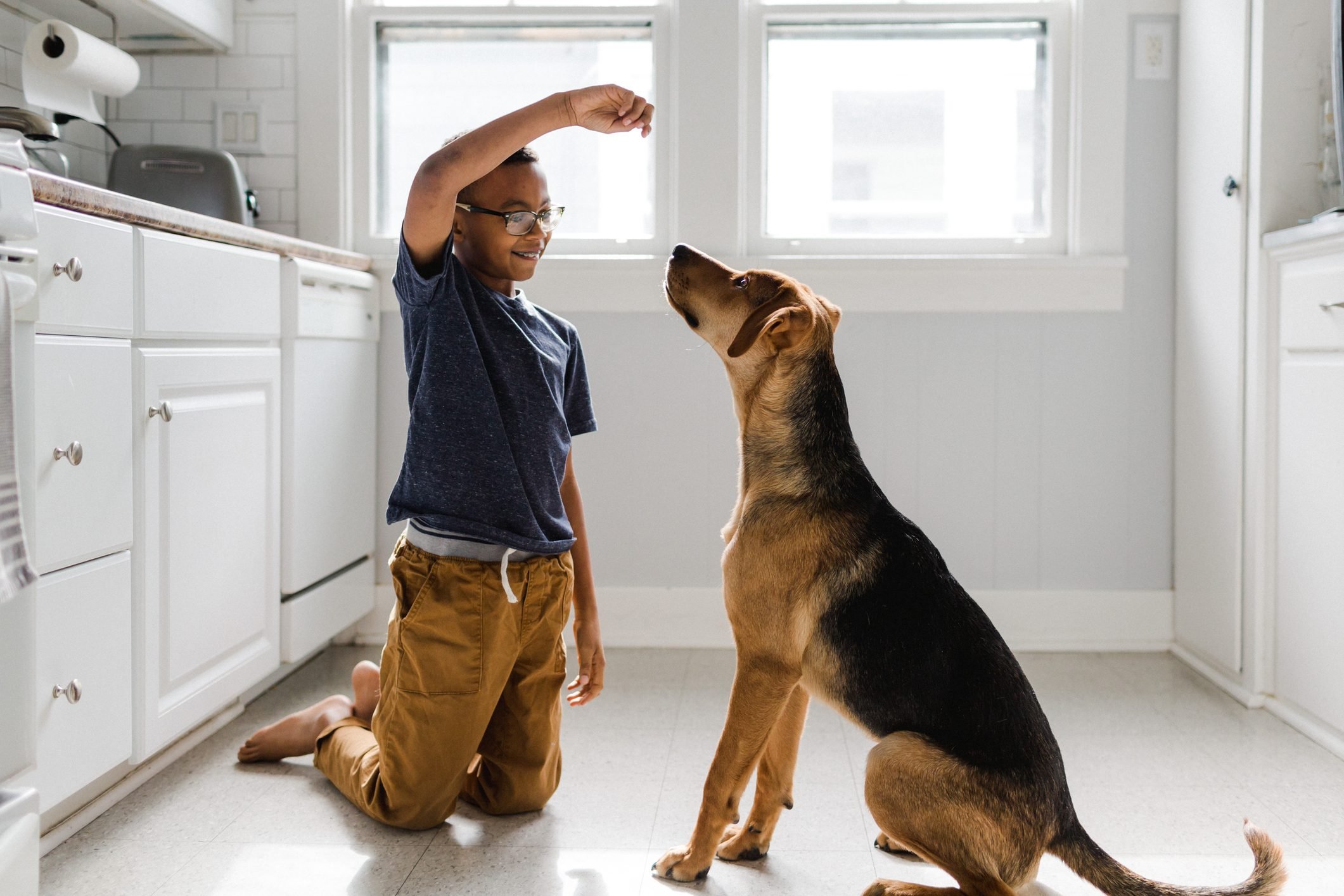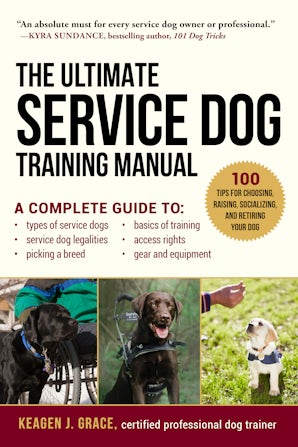Picking the Right Dog Training For Dogs: Finding the most effective Methods for Success
Picking the Right Dog Training For Dogs: Finding the most effective Methods for Success
Blog Article
Leading Pet Dog Training Strategies for every single Phase of Your Canine's Life
Reliable pet training is crucial at every stage of a canine's life, as each phase provides special difficulties and opportunities for growth. It is crucial to recognize that training must advance along with a dog's advancement, ensuring that techniques continue to be reliable and appropriate.
Young Puppy Educating Fundamentals
Puppy training fundamentals prepared for a well-behaved grown-up dog and involve a number of crucial elements that should not be neglected. The first phase of training concentrates on developing a solid bond between the young puppy and its proprietor, which is essential for efficient communication. Socialization is extremely important; revealing puppies to numerous environments, individuals, and various other pets aids them develop self-confidence and flexibility, minimizing the chance of behavior problems later in life.
Basic commands, such as sit, remain, and come, create the foundation of obedience training. Using positive reinforcement strategies, such as deals with and praise, encourages wanted behaviors and cultivates a positive learning experience. Uniformity in commands and training sessions is essential, as young puppies grow on routine and framework.
In addition, residence training is an essential element of pup training. Developing a routine routine for washroom breaks and using marked locations can help lessen crashes and advertise great practices. Overall, an all-around technique to puppy training, incorporating house, socializing, and obedience training, sets the stage for a well-adjusted adult pet dog, making sure an unified relationship between the pet and its proprietor.
Teenage Actions Monitoring
As puppies mature into teens, their actions can change significantly, frequently providing brand-new obstacles for owners. This developing phase, usually occurring between 6 months and two years, is noted by enhanced power levels, curiosity, and an expanding sense of independence. Recognizing these changes is important for efficient habits monitoring.
Adolescents may display defiant tendencies, such as disregarding commands they formerly understood or taking part in damaging habits. Consistency in training continues to be vital; reinforcing found out behaviors through positive support can assist neutralize these difficulties. Brief, interesting training sessions are vital to preserve their rate of interest and emphasis.

Furthermore, developing an organized routine can significantly enhance a teenage pet's complacency. Normal exercise is vital to transport their power favorably, minimizing the probability of unwanted behaviors. By utilizing these strategies, proprietors can successfully browse the complexities of adolescent actions, cultivating a well-adjusted, pleased canine friend.
Adult Canine Obedience Techniques

Positive reinforcement continues to be a vital method; satisfying excellent behavior with deals with, praise, or play encourages conformity. Consistency is essential; the same commands and benefits must be made use of by all member of the family to prevent confusion.
Incorporating training into daily regimens can also work. Technique commands throughout strolls or meal times, allowing training to blend seamlessly right into everyday life. Taking part in structured activities, like dexterity training Learn More Here courses or obedience classes, can additionally improve a pet dog's abilities while offering beneficial socializing possibilities.
It is necessary to identify that grown-up pet dogs may also exhibit stubbornness or complacency. Readjusting training methods to maintain their passion, such as differing benefits or presenting brand-new commands, can help receive motivation. In general, a continuous dedication to obedience training will certainly cultivate a well-behaved and balanced grown-up pet.
Elderly Pet Dog Adaptation Methods
Recognizing the unique requirements of senior pets is essential for guaranteeing their convenience and well-being. As pet dogs age, they might experience a decline in wheelchair, vision, and cognitive feature, requiring tailored adaptation approaches.
First, consider customizing the living environment. Ensure that the home is accessible and risk-free; get rid of obstacles and offer non-slip surfaces to avoid falls. Additionally, take into consideration utilizing ramps or actions to aid them access their favorite areas.
Secondly, exercise must be adapted to represent lowered endurance and joint health and wellness (Dog Training For Dogs). Take part in much shorter, a lot more constant strolls, and include mild tasks like swimming, which can be advantageous for arthritic joints
Moreover, mental excitement continues to be critical. Usage simple challenge toys or take part in scent work to keep their minds sharp, while avoiding overwhelming tasks that may annoy them.
Last but not least, routine vet check-ups are vital to check health modifications and readjust treatment routines appropriately. By carrying out these resource adaptation approaches, you can enhance the top quality of life for your elderly pet, ensuring they age beautifully and comfortably.
Lifelong Knowing and Enrichment
While canines of all ages take advantage of finding out and psychological stimulation, long-lasting enrichment is especially important for keeping cognitive health and emotional well-being in both senior and younger dogs. Engaging activities not only boost a pet dog's quality of life yet also strengthen the bond between the pet dog and its proprietor.
Enrichment can take different types, consisting of interactive toys, puzzle feeders, and aroma job, which promote pop over to this site a pet's detects and urge analytic. Routine training sessions, incorporating brand-new commands or techniques, maintains their minds sharp and promotes a feeling of achievement. Socializing with various other pets and individuals is just as crucial, as it helps avoid behavior problems and fosters adaptability.
In addition, including workout into a pet dog's routine is necessary for total health and wellness. Tasks like dexterity training, fetch, or long walks give both psychological and physical excitement, making sure canines continue to be pleased and engaged.
Lastly, consider varying the atmosphere by presenting new areas for strolls or playdates. This adjustment can reignite a canine's inquisitiveness and interest for expedition. Lifelong learning and enrichment not just add to a fulfilling life yet likewise promote a harmonious relationship with your canine companion.
Verdict
Efficient dog training techniques progress throughout a pet dog's life, attending to the special demands of each developmental phase. Highlighting routine mental excitement, socialization, and physical exercise promotes a balanced and fulfilling life for pets.
Efficient pet dog training is crucial at every stage of a canine's life, as each stage provides one-of-a-kind challenges and possibilities for development.Puppy training fundamentals lay the groundwork for a well-behaved adult pet and include numerous key components that need to not be ignored. On the whole, a well-rounded strategy to puppy training, incorporating obedience, home, and socialization training, sets the phase for a well-adjusted adult dog, guaranteeing a harmonious relationship in between the family pet and its owner.
Numerous canine owners might find that grown-up canines, while typically more secure in habits than their adolescent equivalents, still need constant training to maintain obedience and great manners.Effective pet training techniques progress throughout a canine's life, addressing the one-of-a-kind requirements of each developing phase.
Report this page